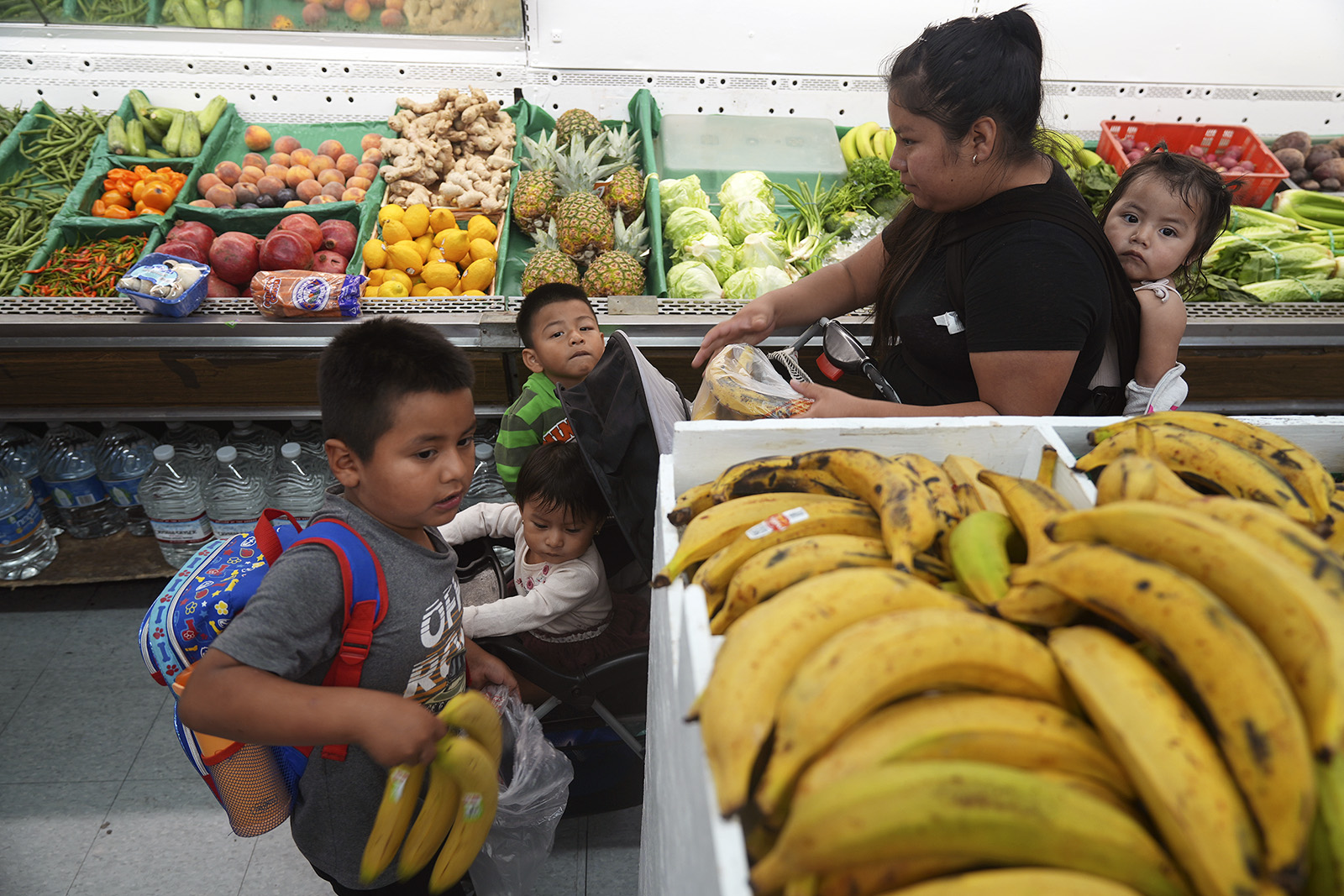
(RNS) — Millions of Americans who rely on food assistance are facing a devastating reality now that the Supplemental Nutrition Assistance Program — better known as the food stamps program — has run out of money. Despite a federal judge order that SNAP must be funded using emergency money previously allocated by Congress, the Trump administration has so far only agreed to provide half of the necessary funds to keep SNAP benefits going for the month of November. Lives hang in the balance.
SNAP, the nation’s largest anti-hunger program, helps more than 42 million people put food on the table each month. Because of a federal funding impasse, benefits may not be issued unless Congress acts — and with the House out of session indefinitely, there’s little reason to believe they will.
That means hungry children, working families, seniors on fixed incomes and people with disabilities could wake up to find their lifeline gone. It doesn’t have to be this way.
In a healthy society, we measure success not by how the powerful thrive, but by how the vulnerable are supported. When a nation allows children to go hungry, we are not merely failing those children — we are failing ourselves.
Despite the fierce political division and deep disagreements in Washington today, there is rare agreement on SNAP. Sen. Josh Hawley, a conservative Republican from Missouri, urged his colleagues to act: “America is a great and wealthy nation, and our most important wealth is our generosity of spirit. … Nobody in America, this richest of nations, should go to bed hungry, and certainly no child,” he wrote in The New York Times.
Across the aisle, U.S. Rep. Alexandria Ocasio-Cortez, a liberal Democrat from New York, knows too well how important this program is. “My family relied on food stamps when my dad died at 48. I was a student. If this happened then, we might’ve just starved,” she tweeted.
When voices as different as Hawley and Ocasio-Cortez align, it reveals a simple truth: Hunger is not partisan. It is human.
As they often do, America’s religious (and nonreligious) communities are stepping in to try to fill the gap, but no charitable system, no matter how generous, can fill a $2 billion-a-week gap. As Eric Goldfarb of the Jewish Federations of North America put it, “For every meal a pantry provides, SNAP provides nine.”
Jeremy Everett, who leads the Baylor Collaborative on Hunger and Poverty at Baylor University, a Baptist institution, said the decision to let SNAP expire is more than “misguided policy. It is a compromise of values … Feeding the hungry is not a partisan issue — it is a gospel issue.”
Faith-based community organizations such as the Jewish Family and Children’s Service of Long Beach and Orange County in California and Chicago’s Inner-City Muslim Action Network are standing in the gap. Community leaders are working across lines of difference to help their neighbors — but the only sustainable solution is for the White House and Congress to do their jobs.
We know why SNAP matters, and why it works. For one, nutrition is foundational to our kids’ ability to thrive in school; children who skip meals are more likely to face long-term health consequences. And SNAP strengthens communities; every dollar in SNAP benefits reverberates through local grocers, farmers’ markets, corner stores and rural co-ops.
But most importantly, our ability to care for those who need help reflects our values. From Scripture to civic tradition, caring for the hungry has always been a clear test of moral health. This isn’t abstract, and it isn’t a “Red State” or “Blue City” problem — this is an unfolding American crisis.
Roughly 12% of Americans — about 42 million people — use SNAP each month. In Ohio, nearly 1.4 million people rely on the program. In Shelby County, Tennessee, which includes Memphis, nearly one-third of residents rely on SNAP. In Alabama, more than 740,000 people count on SNAP to feed their families. In Texas, more than 3 million — about 1 in 10 Texans — depend on these benefits to make ends meet.
These are not statistics. They are families, neighbors, co-workers and classmates. Hunger cuts across geography and ideology.
Getting SNAP back online isn’t only a stress test for America; it can be a road map for how we cooperate across deep differences as our nation approaches its 250th birthday.
Neighbors can look after one another — checking in, sharing food, supporting local pantries. Faith communities and civic groups can model the compassion our politics too often forgets. Businesses can join the effort, knowing that strong communities and stable families sustain healthy markets. Public leaders can rise above the fray and act — not for political points, but for the moral promise of the nation.
The future of SNAP is not just about a benefits card — it’s about who we are when we are tested. A hunger-free America, where children eat and families have dignity, should not be a dream deferred to the next budget deal. It should be our shared project — the common table we build together as America turns 250.
What we do for the weakest among us tells us who we are. And right now, America must act.
(Adam Nicholas Phillips is CEO of Interfaith America. The views expressed in this commentary do not necessarily reflect those of Religion News Service.)
